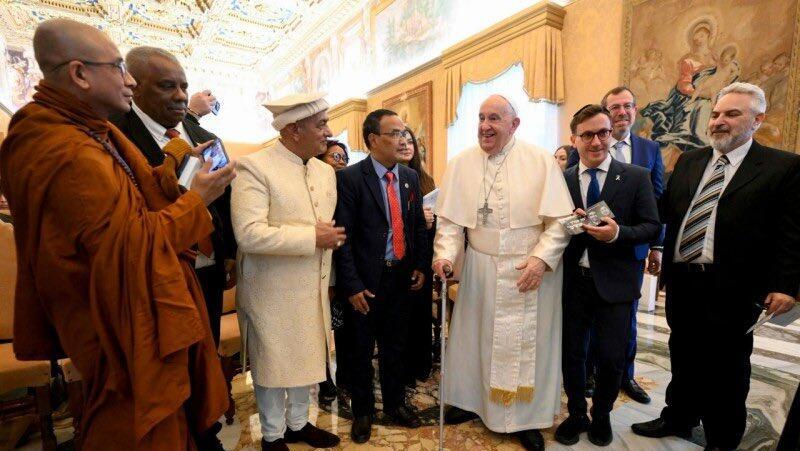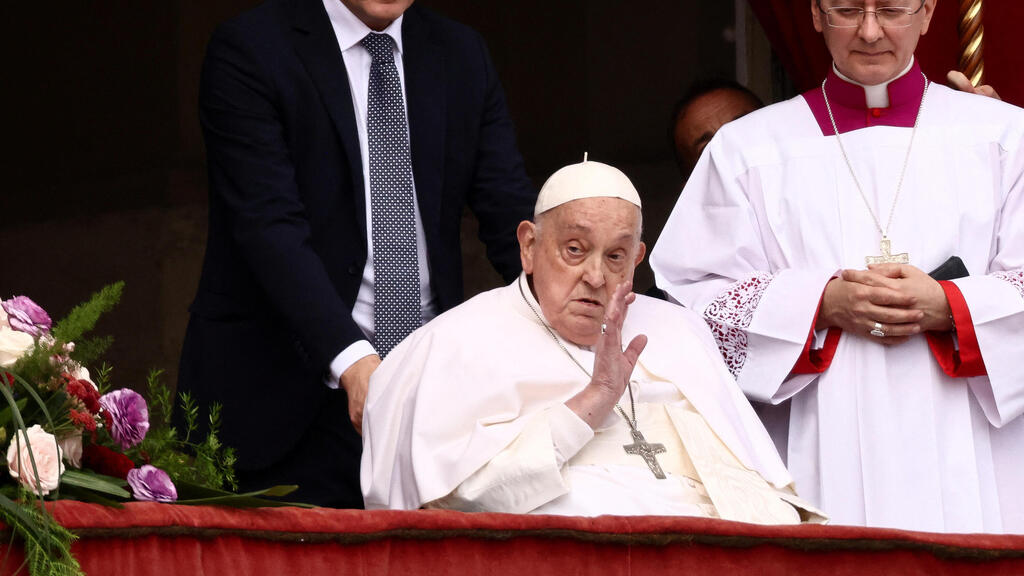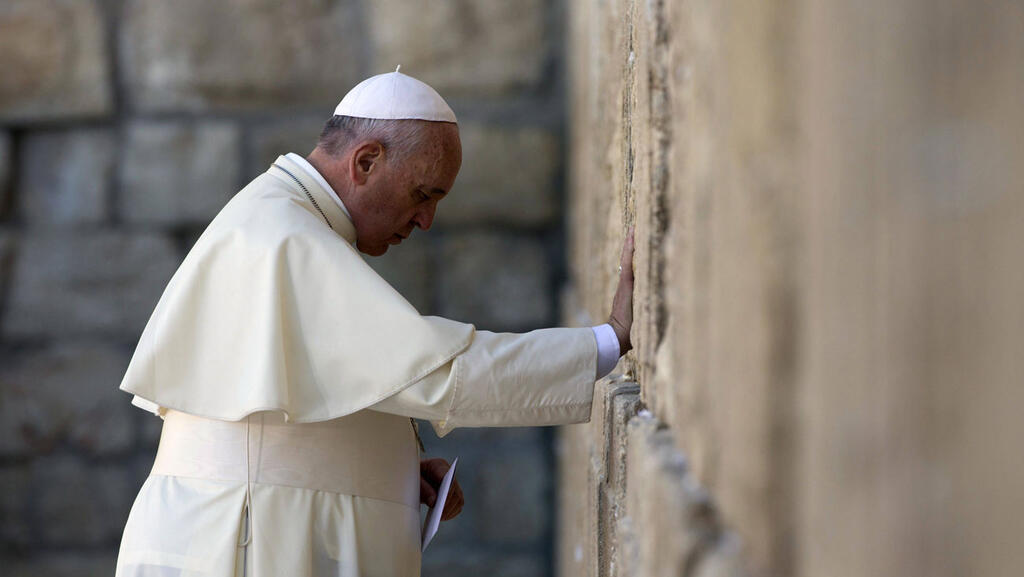Getting your Trinity Audio player ready...
Pope Francis, who died on Monday at the age of 88 after serving at the head of the Catholic church for 12 years, had been outspoken about his criticism of Israel's war in Gaza and just two days before his death again called for a ceasefire.
In his Easter message, the pontiff said the situation in Gaza was "dramatic and deplorable". He called on Palestinian terror group Hamas to release its remaining hostages and condemned what he said was a "worrisome" trend of antisemitism in the world. "I express my closeness to the sufferings ... of all the Israeli people and the Palestinian people," the Pope said in his message. "I appeal to the warring parties: call a ceasefire, release the hostages and come to the aid of a starving people that aspires to a future of peace."
4 View gallery


Pope Francis with an interfaith delegation after questioning whether Israel committed genocide in Gaza
(Photo: Vatican)
After the Hamas massacre of Oct. 7, Pope Francis repeatedly called on Hamas to release the hostages, but his criticism of Israel grew over the long months of war. In November, the Pope suggested that the global community should study whether Israel's military campaign in Gaza constitutes a genocide of the Palestinian people, in some of his most explicit criticism yet of Israel's conduct in the war.
In a meeting with an interfaith delegation a few days later, which included Jewish, Muslim, Christian, Buddhist and Druze representatives. He clarified the remarks, claiming they were taken out of context.
"I did not claim that Israel committed genocide," he explained to the delegation. "I was shown materials from the war, and I said that if this is true, then it needs to be investigated. I understand what is happening in Gaza. I think Hamas should no longer exist in the world, but the war should also not be prolonged," he said.
The Pope noted his agreement that people of different faiths were also threatened by radicalism, and if it prevails, everyone loses. He claimed that, while Palestinians continuously send him materials about the war, Israel does not provide him with documentation or draw attention to it. Druze religious leaders from Hurfeish, a Druze town in northern Israel, also attended the meeting, informing the Pope that the Druze community in Israel suffers from terrorism and recounting the story of 12 children killed in Majdal Shams in the northern Golan by a Hezbollah rocket.
Get the Ynetnews app on your smartphone: Google Play: https://bit.ly/4eJ37pE | Apple App Store: https://bit.ly/3ZL7iNv
In a meeting with hostages who had been released and family members of hostages still held in Gaza, the Pope expressed his closeness to the families and committed to doing everything he could to ensure their release. "I pray for you and your people," he said, "and the first important thing is to save people."
During Christmas that year, he led services over the weekend in front of a manger scene in which baby Jesus was placed on a keffiyeh, the central symbol of the Palestinians and anti-Israel protests.
Francis visited the Holy Land in 2014. During the visit he stated, while clarifying that Israel has the right to live in security, that the Palestinians have the right to a sovereign homeland. "We hope that the two-state solution will become a reality and not remain a dream," he said during that official visit. When he visited the Western Wall that year, he said: "I came here to pray and asked God to grant peace among the peoples."
He had visited Israel as a young man decades earlier, in October 1973, just as the Yom Kippur War broke out. He had planned a trip around the country, but was reportedly “stuck” in a Jerusalem hotel for six days because of the war.




